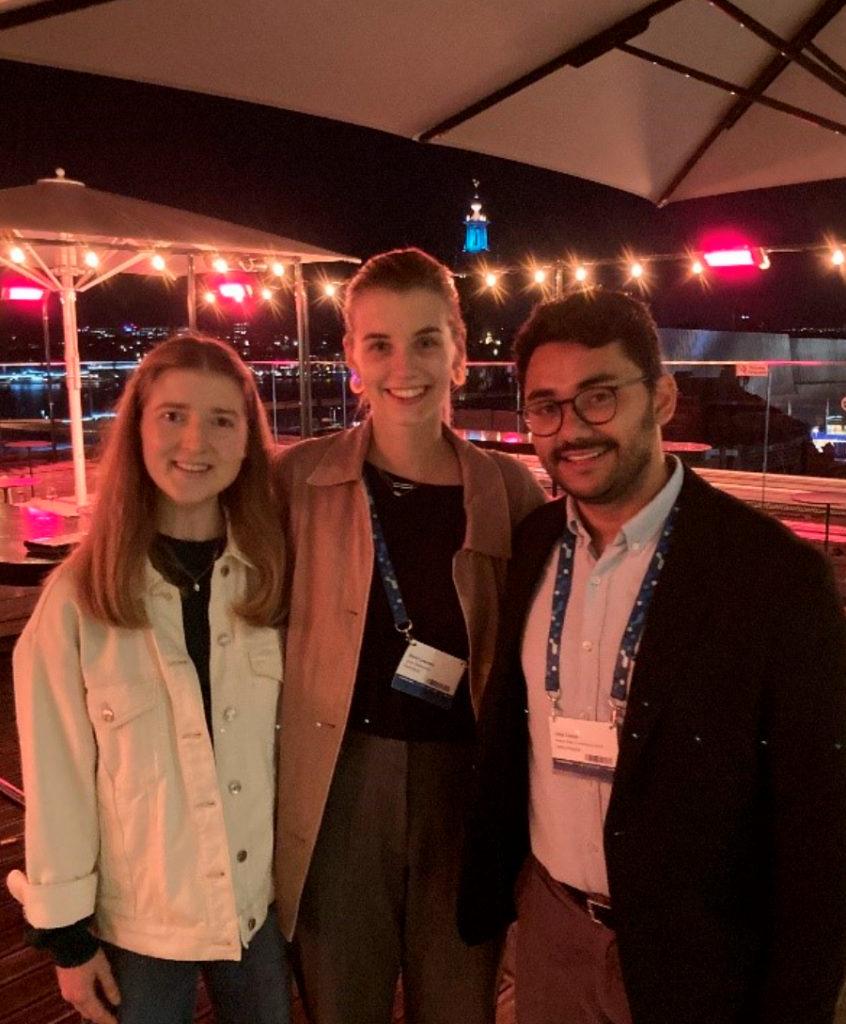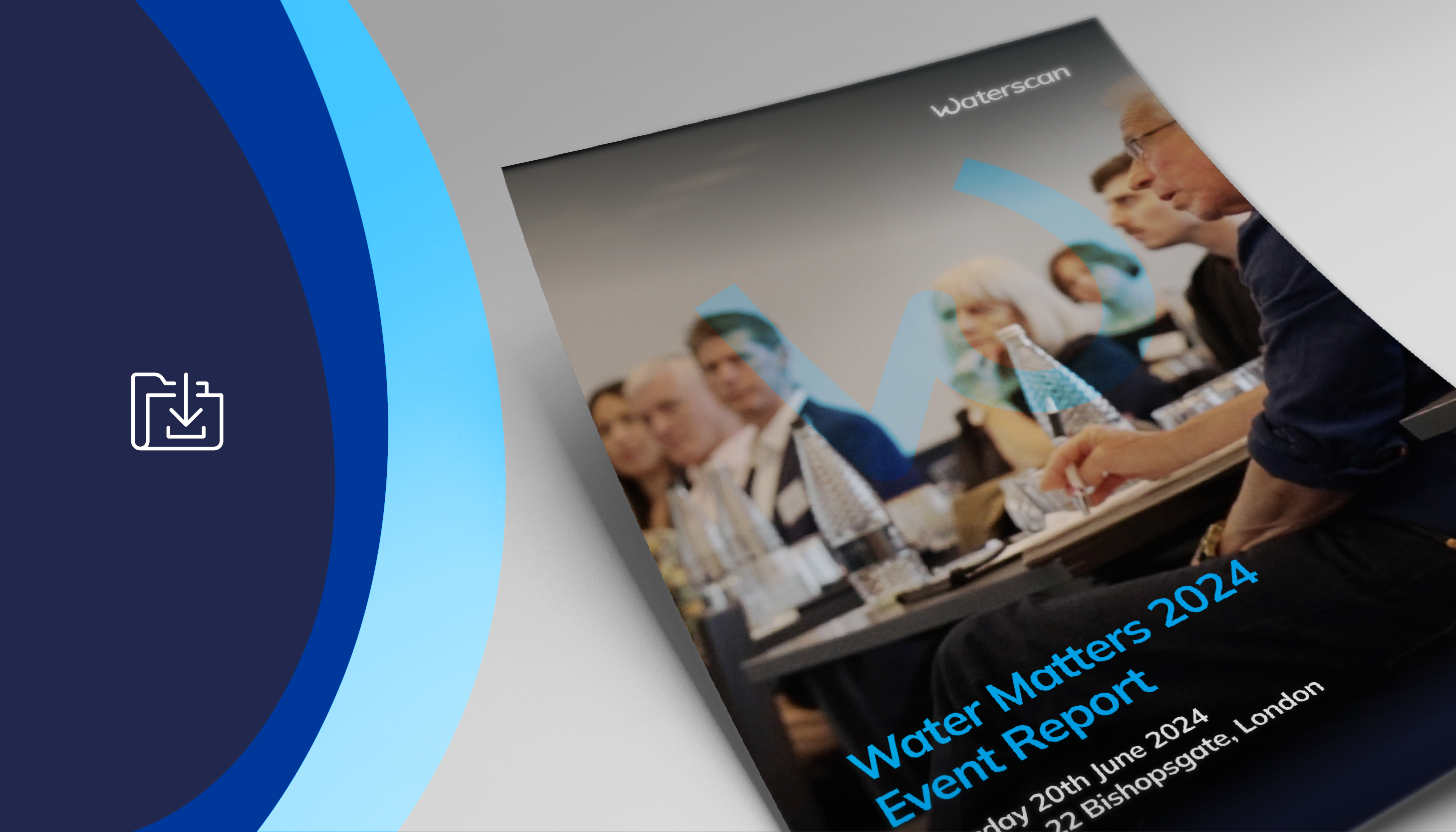Eleanor Pendle’s experience at World Water Week 2023.

Hosted by the Stockholm International Water Institute (SIWI), World Water Week is an invaluable opportunity to bring together water professionals, activists, business representatives, and public stakeholders from around the world.
I had the opportunity to represent Waterscan at the conference in Stockholm this year, joining the 15,000+ participants taking part in-person and online.
With around 300 sessions being run on topics from water scarcity and innovation to technology and governance, my work in Stockholm was supplemented by the Waterscan team virtually covering 45 further talks. These included ‘Water in Business: From Commitments to Transformation’ and ‘Water: The Source of Future Social Sustainability’ to name but a few.
Learning, connection and inspiration

Some of my most memorable discussions at World Water Week took place during in-person only side events and after-hours networking sessions. These included sharing insights on how to best formulate, operationalise, and monitor water targets and disclosures, the importance of prioritising local and watershed scale nature-based solutions, and the value of data that is openly shared and impact-oriented.
A strong message of hope also percolated the week. While water risks are pressing and currently accelerating more quickly than our responses, productive and proactive solutions are also strengthening and increasingly becoming the norm.
The opportunities to connect with impressive leaders on water were undoubtedly heightened by attending in person. Not only did I have the chance to catch up with university friends Merel Laauwen and José Castro and hear about their new water quality venture Segura, but I also had the pleasure of meeting brilliant and energised representatives from organisations like the World Resources Institute, The Nature Conservancy, GSK, Unilever, and Accenture to name just a few.
Key messages
So many insights and learnings could be taken from World Water Week. Here are three of the key themes I picked up from my time in Stockholm:
1. For innovation to be useful, it must be translated into policy and combined with adequate funding.
Innovation, whether technological, behavioural, or governance-related, can only be turned into impactful change if it is accompanied with an enabling policy environment from both governments and businesses. And without a sufficient quantity or longevity of funding, even the most compelling innovative idea will remain just that: an idea.
Plus, we need to rethink the boundaries placed around data to maximise the potential of innovation. Rather than seeing data as fragmented pieces of private property, we need to shift towards treating most data sources as public resources that are most actionable when layered and used contextually.
2. There is immense value to be gained from working across sectors and learning from specialists beyond your immediate field.
By seeking and sharing insights from other sectors and industries, best practices can be more rapidly established without each sector having to repeat transferable pilots. For example, insights around resource efficiency, public attitudes, and effective governance can be taken from the energy, agriculture, and health sectors to strengthen work in the water sector. Businesses can also gain from the rigour and legitimacy earned by working with research institutions and practitioners.
We should actively encourage sustained partnerships across public, private, NGO, and voluntary sectors. Engaging with stakeholders from across society is essential for coordinated collective action, to gain wider buy-in, and to help ensure that business interventions are carried out in the most locally conscious and ethical ways.
3. Careful, constructive communication leads to direct action.
When framing water and environmental challenges, we need to shift from crisis narratives to a greater focus on risk mitigation and management. While water issues are of urgent concern, conventional catastrophe narratives can lead to paralysis, inaction, and doomsday fatigue. Instead, we should focus on forward-thinking, productive, and collaborative actions to minimise and deal with water risks.
This approach draws on the interconnectedness of water challenges, emphasising that protecting water resources is an essential component of climate change adaptation.
This translates into direct, tangible action for businesses like engaging with water disclosures, performing far above national targets or minimum standards, and investing back into the water environment businesses rely upon to operate. Such activities bring added benefits like improving trust and reputation among the public, customers, and shareholders and fulfilling the environmental social governance (ESG) criteria increasingly required by investors.
The overall impact of ambitious water action is to de-risk businesses and supply chains. In doing so, businesses strengthen their social licence to operate in a world where social and environmental imperatives are increasingly non-negotiable.
Closing thoughts
I have returned from World Water Week with renewed excitement, an expanded appreciation of the efforts being undertaken globally to deal with complex environmental challenges, and more conviction than ever that we all can and must take more action on water.




